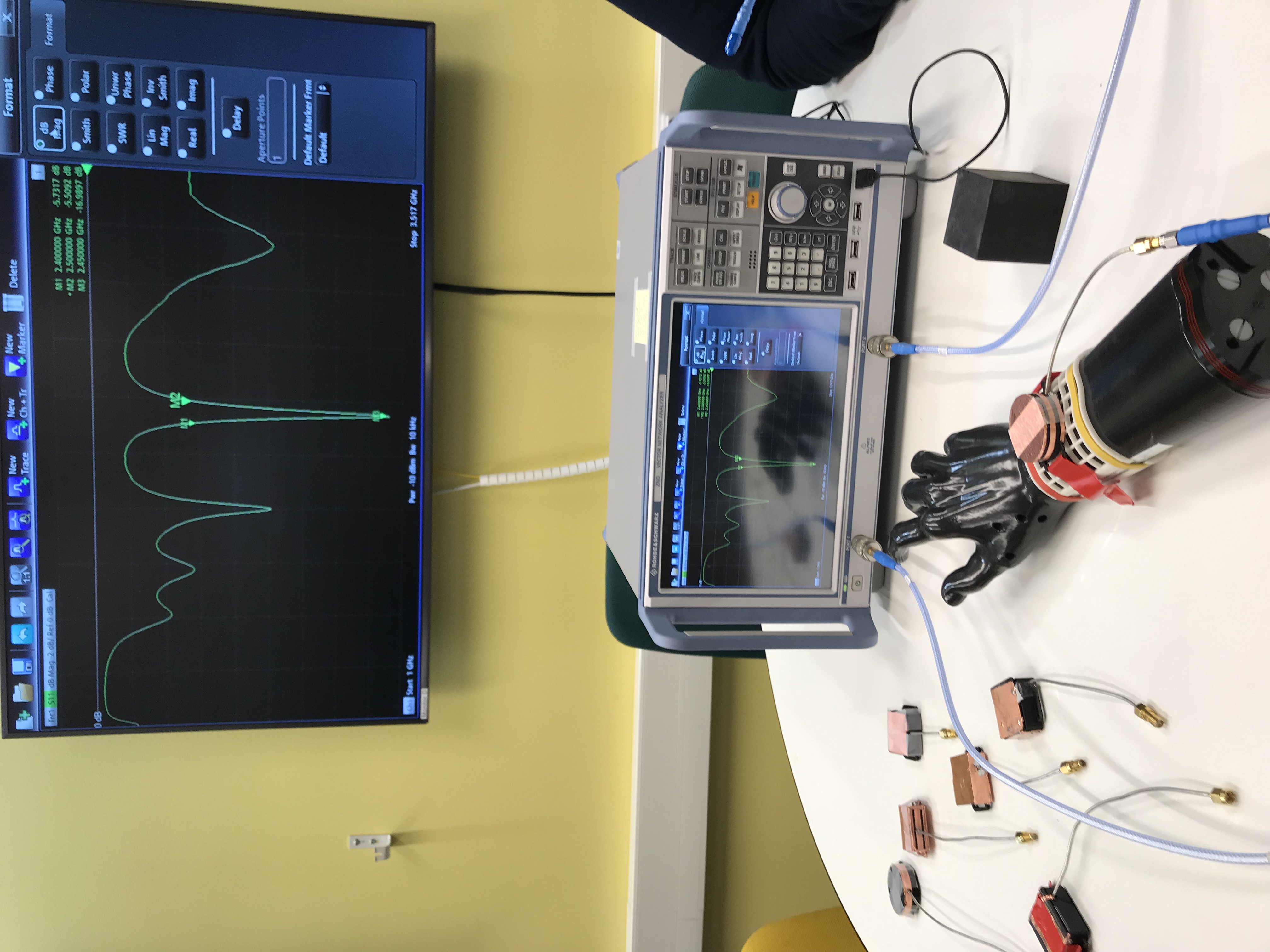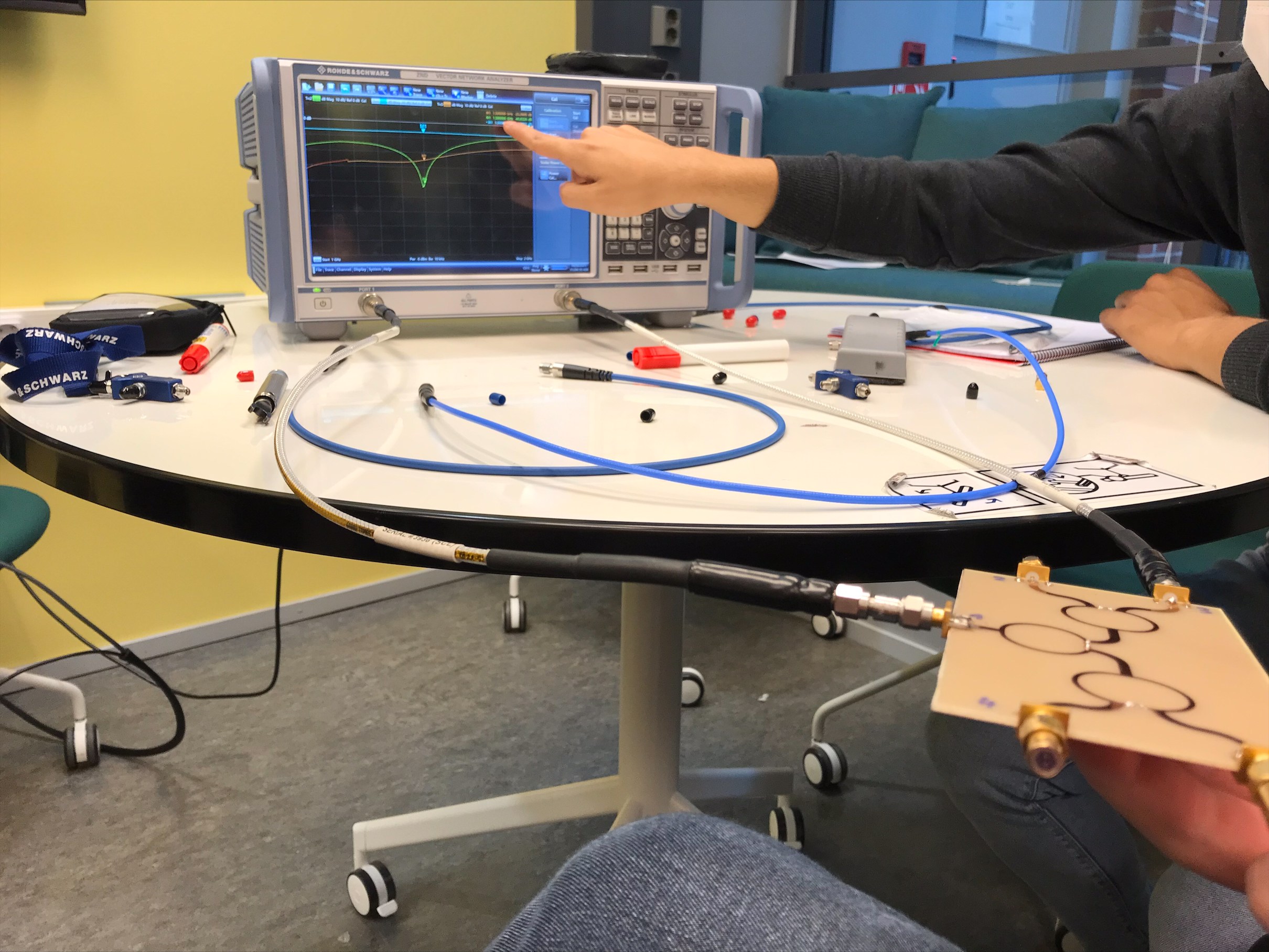ELEC-E4740 - Antennas Workshop D, Lecture, 6.9.2023-8.12.2023
Kurssiasetusten perusteella kurssi on päättynyt 08.12.2023 Etsi kursseja: ELEC-E4740
Osion kuvaus
-
The Antennas workshop for the autumn 2023 edition is over, the final session was held on Friday, December 8th. The final Bluetooth antennas are shown in the figure. Happy holiday season!

The Antennas workshop is the flagship course in the microwave engineering major, focusing on one of the key research areas of the ELE department and ELEC school: antennas. Specifically designed for second-year master's students, this course builds upon the foundation established in the Antennas course offered in the spring semester, ensuring a progressive learning experience. Rather than being an introductory course on antennas, it presents advanced concepts and practical applications. The course is structured around two major antenna design and research topics, one per period, carefully selected to foster deep learning, student motivation, and problem-solving skills. The course topics are inspired by our ongoing antenna research.
The first topic explores antenna arrays, an essential research area with applications in various fields such as 5G and 6G communication systems, radars & sensors, and space technology. Antenna arrays possess the unique ability for electrical beam-steering. The second topic focuses on Bluetooth antennae for sports watches or sensor tags, delving into electrically small antennas, multi-resonant or multi-band impedance matching, and the influence of nearby objects on antenna performance. Both topics align with research conducted by the ELE department, including antenna arrays, wireless communication, wireless sensors, backscattering communication, and mobile terminal antennas.
Both topics are approached through a design – manufacture – measurement framework, allowing students to gain practical experience and apply their theoretical knowledge in a hands-on manner.
The course embraces the pedagogical principles of constructivist learning theory, where the acquisition of knowledge goes beyond the simple transmission of information from teachers to students. Instead, it emphasizes the active construction of new knowledge based on students' prior knowledge and experiences. In this course, the focus is on the process of learning and gaining insights rather than solely on achieving numerical results.
The role of the teachers in this constructivist approach is to create an environment that facilitates learning and to act as guides rather than providing direct solutions. The introduction of theory occurs in response to authentic real-world problems, where the need for theory becomes evident. Teachers may deliver mini lectures alongside practical work, addressing theory when it is most relevant and when students express a need for it.
An important aspect of constructivist teaching is encouraging students to test their ideas, even take reasoned risks, and learn from their mistakes. This approach fosters a deeper understanding of the subject matter and promotes independent thinking. Developing learning-to-learn skills is integral to constructivist teaching because it equips students with the ability to continue learning beyond the boundaries of the course, enabling lifelong learning experiences.
In the figure below: VNA measurements in autumn 2021.

